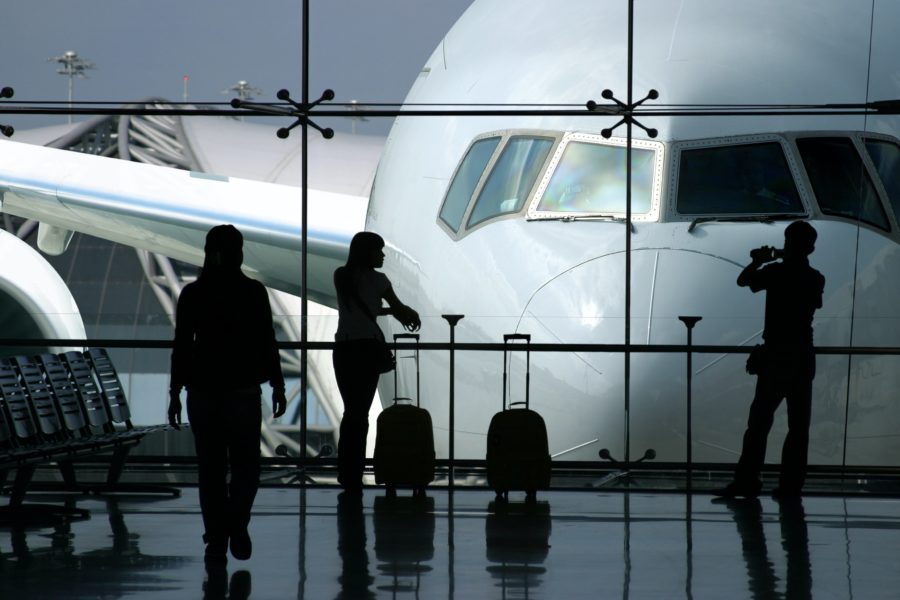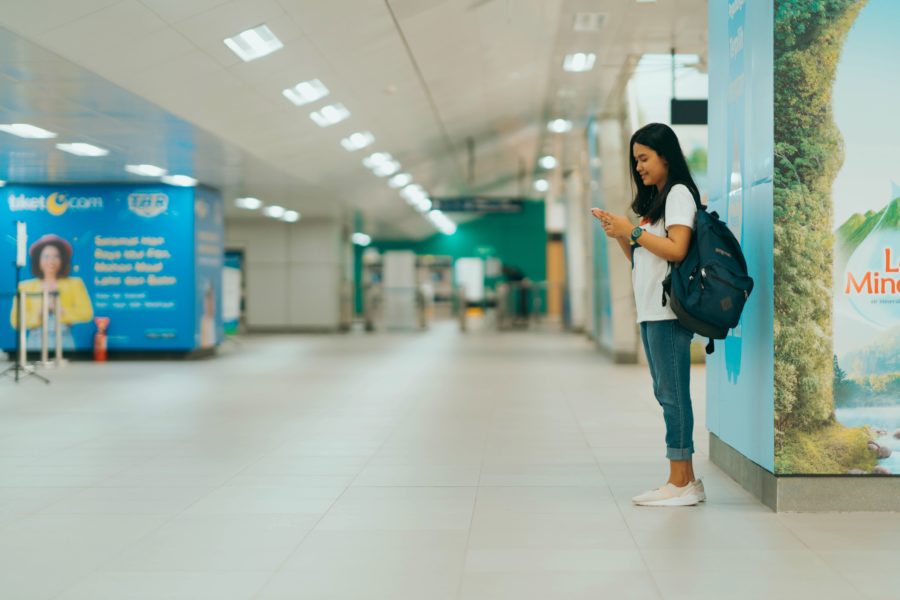Long queues, delays, and airport cancellations made headlines this summer. How did airport chaos impact travel intent and bookings? A global perspective for hoteliers and travel agents.
There’s always a feeling of anticipation when boarding a plane towards a new destination and a long-awaited vacation. This year, long lines, lost luggage, and oversold flights have left travelers feeling frustrated and exhausted instead of relaxed and excited. Navigating these setbacks isn’t an enjoyable way to start a trip and these stressful experiences are being referred to as airport chaos.
Passengers fear crowded airports, baggage being mishandled, or worse – flights being canceled last-minute. In the last months, we witnessed the worldwide airport chaos that affected the entire travel industry. What everyone hoped to be a short disruption turned into long-lasting mayhem.

66% of the European airports will experience delays until end of this summer.
A few weeks ago, the German carrier Lufthansa canceled more than 1000 flights in a single week just from the Frankfurt and Munich airports. This was the result of a one-day strike by the ground staff asking for higher salaries. More than 130.000 travelers were affected by the cancellation. At the beginning of July, there were already 15 k flights canceled in Europe for the month of August.
The Recipe for Disaster
A combination of factors has contributed to airports and airlines not being able to effectively manage their passengers:
- Accentuated staff shortages since the pandemic.
2.3 million jobs were lost as a result of the pandemic in the aviation sector. As of September 2021, airports and airlines operated with 21% less staff, compared to pre-pandemic.
- Toxic culture in the industry
Staff shortages were especially difficult to handle because once people quit, they never wished to come back. A combination of low salaries, stressful work, and what pilots describe as a toxic culture made hiring even more difficult. These factors also affected the existing workforce. The staff announced multiple strikes in French, German and British airports, demanding better pay and working conditions, disrupting the existing flight schedule even more.
- Overselling to cover the pandemic losses
A more than optimistic scenario was applied when it comes to flight bookings for 2022. Trying to cover way too fast for the pandemic losses, airlines released too many tickets for sale, without thinking about the continuous operational challenges. Demand was much more than reality could handle.
- Increased passenger volume.
Until Q2 2022, it seemed that airports and airlines could handle the passenger volume. With summer vacations approaching, more travelers started to book flights. Our own data for Q2 2022 shows an increase in global review volume, indicating a continued recovery for the travel sector. That’s when the aviation industry started to slowly crack. With fewer human resources in place, especially ground staff, the check-in and baggage handling were taking too much time to complete, making people wait for hours to get through the security gatelines or wait for their checked-in luggage. Strikes have contributed to an increased number of flights being canceled and ruining travelers’ vacations.
The Industry Finds Who to Blame: a List of Scapegoats and Impostors
Mediatized as airport chaos, this situation is not entirely dependent on airports. Airlines are to be equally blamed. What’s more interesting to follow – and plays like a soap-opera scenario – is the way these major players are accusing each other or finding scapegoats to cover for long-time problems and avoid responsibility.
- Airlines are accusing airports of not having enough ground staff.
- Airports blame airlines for not hiring enough staff.
- Airports believe Tik Tok trends are the cause of some of the chaos: a viral video featuring a “travel hack” for skipping queues by pretending to be disabled or mimicking health problems. Heathrow Airport has claimed that more people require special assistance since the pandemic.
- Passengers who attempt to take too many liquids are also blamed for the long queues when passing through security.
The Impact on Travel Intent Is Still Contained
The entire crisis translates into continuous stress for those waiting to fly and hours of frustration and tiredness for those experiencing the chaos. The long-awaited vacations are postponed for those whose flights were canceled. Additional money and stress are replacing relaxation.

8 out of 10 travelers have experienced problems while on a trip this year.
Common issues include higher prices than expected (57%), long waits (29%), and poor customer service (27%).
Despite the entire disruption, people still want to travel and their plans haven’t been impacted significantly. As an example, Europe, which experienced the most reduction in the number of seats as a result of the airport chaos, leads the travel recovery race since the beginning of 2022. However, there are certain destinations that are affected much more than others – among them Amsterdam and London, which have experienced major dropdowns.
Recent data from Forward Keys shows that this crisis led to a 4% reduction in capacity, globally, which would convert into around 14.3 million seats.

Most affected regions
1. Europe – 9 million seats
2. APAC – 4.6 million seats
3. Americas – 1 million seats
Source: Airlines canceling flights: what’s the real impact?, Forward Keys
What has changed though is how travelers prepare for a flight. The number of searches for travel insurance has skyrocketed in the last few months. People are also looking for last-minute flight bookings and search for more information on flights, by googling “customer service” for various airlines.
British travelers are looking for travel insurance options. June and July 2022 saw a 276% increase in search volume for travel insurance, compared to 2021.
Some Hoteliers Revise Their Booking Forecasts Due to Airport Chaos
However insignificant the impact is, airport chaos has determined some hoteliers to revise their numbers. For destinations that heavily rely on air connections with airports from the UK or the Netherlands or with the most affected airlines, an updated forecast was necessary.
For example, the Hoteliers’ Association of the Costa del Sol changed its forecast report, estimating that the occupancy rate may decrease from 70%, as previously included in the report, to 60%.
Canada’s hoteliers fear that airport chaos can impact bookings, although the summer forecast is encouraging, with leisure travel leading the number of bookings.
Besides travel intent, airport chaos is affecting current bookings: travelers rescheduling their stay, and delayed check-ins – are all adding up to the pressure of delivering a great guest experience.
Online Travel Agencies Are Overwhelmed
Traveling is more complex since the pandemic. Navigating all the restrictions and requirements to enter certain destinations can become a real deal breaker for heading into a trip. Add on top of that the current airport disruptions that make the entire process even more uncertain.
These are the factors that made travelers look for more specialized advice when it comes to planning a trip. OTAs have been busier, with more consumers choosing travel planning services. Especially vacationers who are looking for support and assurance of a well-organized trip.
Besides the increased demand, travel agents now have to spend more time managing and monitoring flights or on calls with airports and airlines. Upcoming holidaymakers who booked via an agency are also double or triple checking details, fearing being involved in potential airport chaos.
Travelers expect OTAs to manage this disruption, and this can become a serious challenge for agencies when coupling it with an increased demand for travel services.
Be Kind With the Guests Who Dealt With Airport Chaos
The travel mayhem is affecting everyone involved, from passengers to OTAs and hotels. Unfortunately, it is estimated that the situation won’t get better anytime soon. How can you as a hotelier help your guests cope with long lines and delayed or canceled flights?
- Be flexible. Offer your guests the possibility to reschedule their stay.
- Show empathy. If a guest is late for check-in due to airport delays, be understanding and flexible.
- Be kind. After hours of frustration and tiredness, your guests will appreciate a gesture of genuine kindness. Offer them something small on the house.
- Where possible, mention alternative means of transportation. If you have a lot of guests coming from a country that has a train connection close to your destination, make this information visible to them.
What Airlines & Airports Can Learn from Hotels & OTAs
There’s a big difference between airports and airlines, on one hand, and hotels & OTAs, on the other hand. It’s about the quality of the customer experience and putting travelers’ needs first. Delivering the best service possible. After all, it’s what hospitality is all about.
The current chaos has proved that airports and airlines still need to work on what matters most: a kind and human approach towards their passengers and employees as well. We hope this disruption turns out soon into a lesson learned, that will ensure more effective strategies to handle passengers’ volume, but also a stronger focus on the human touch at the core of the flying experience.
